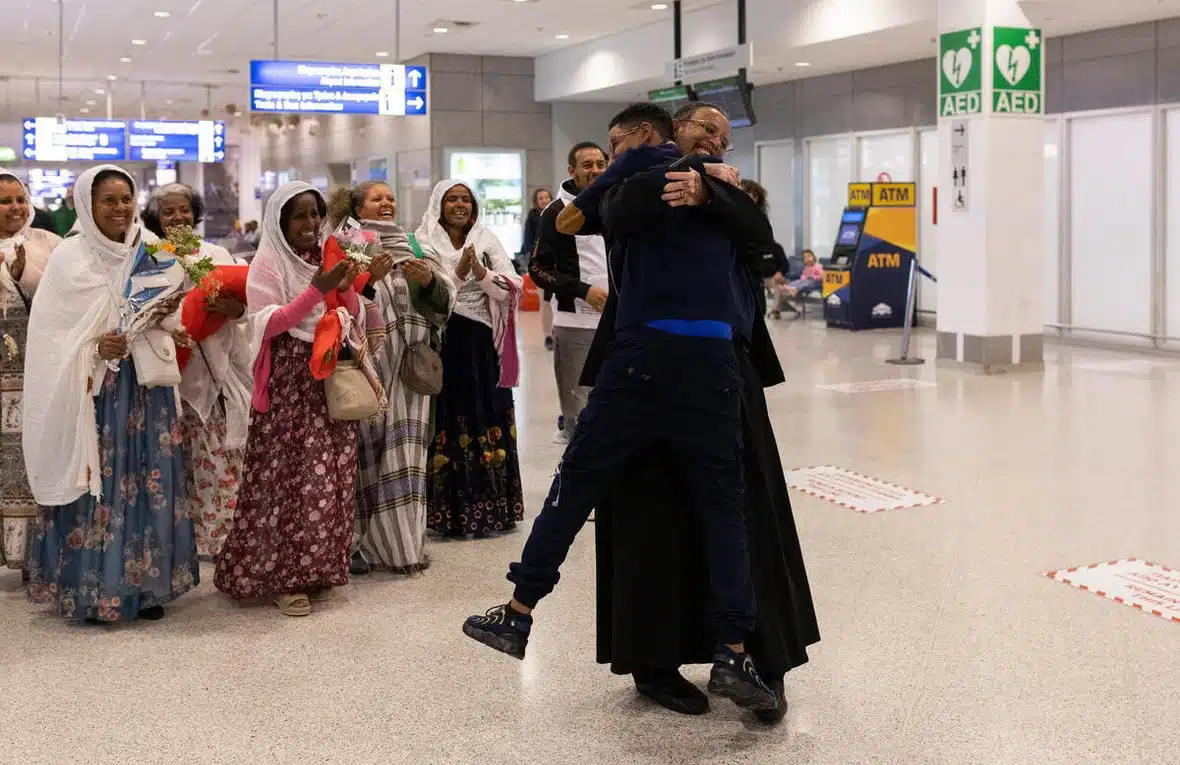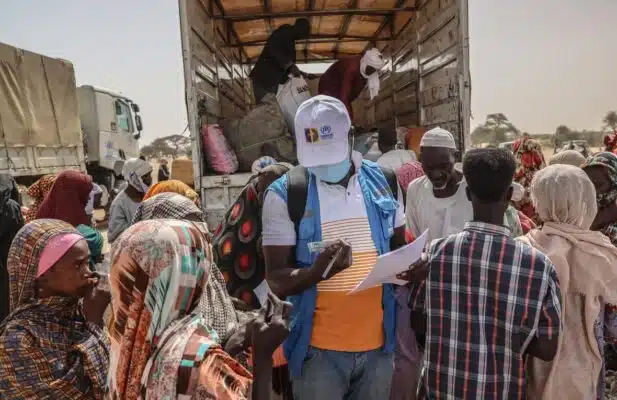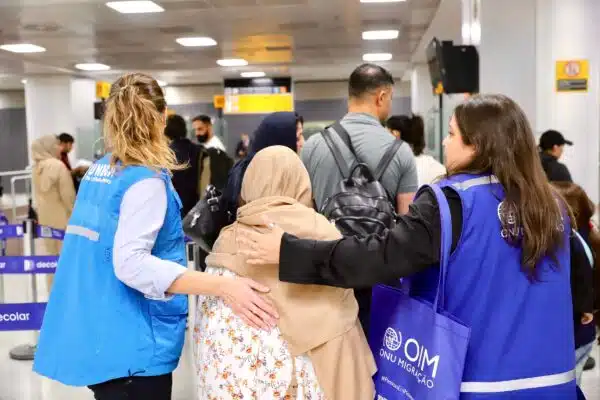
Eritrean refugee Solomon Mesein reunites with his wife and three children at Athens International Airport after 12 years apart. © UNHCR/Socrates Baltagiannis
GENEVA – Nearly 1 million people from eight countries with high asylum recognition rates were offered entry permits into 38 destination countries via work, family and study permits between 2019 and 2023, according to a new report, OECD-UNHCR: Safe Pathways for Refugees, released today by UNHCR, the UN Refugee Agency, and the Organisation for Economic Co-operation and Development (OECD).
“Behind these numbers are refugees using the same systems that millions of people use every day to migrate for work, study or to reunite with family. There is no need to create parallel structures for refugees, we just need to provide them with safe and flexible ways to access existing systems,” said Ruven Menikdiwela, UNHCR’s Assistant High Commissioner for Protection.
In 2023 alone, nearly 255,000 entry permits were issued to refugees from countries with high asylum recognition rates. That is a 14 per cent jump over 2022, building on an already significant 39 per cent rise from 2021. An additional 30,000 people from the nationalities covered benefited from sponsorship schemes to other countries. Not only did 2023 surpass pre-pandemic levels, it exceeded a previous peak in 2017, making it the most successful year on record since UNHCR and the OECD began tracking this data in 2010.
Family reunification permits accounted for the majority of visas issued (63 per cent), followed by work (19 per cent) and study (18 per cent) permits, with all three categories recording increases.
Countries such as Germany, Canada, the United States, the United Kingdom and Sweden are among the leading contributors to these legal migration efforts. They have opened doors by admitting refugees via family reunification, student and worker migration visas. Collectively, they have helped bring the international community more than halfway towards achieving a 2.1 million permit target outlined as part of a strategy to expand access to third country solutions for refugees – one of the objectives of the Global Compact on Refugees.
“These programmes enable refugees to stop being dependent on humanitarian aid and to create stable, independent futures. They are much larger schemes than traditional resettlement and provide additional avenues towards a solution. If countries go further and lift more of the obstacles that refugees face in accessing legal pathways related to documentation, skills certification and others – more people will win back their lives,” said Menikdiwela.
UNHCR is urging States to integrate refugees into their regular migration systems, and to adopt practical tools – like machine-readable travel documents for refugees – that allow people to move safely and independently across international borders. It is also calling for stronger partnerships with the private sector, education institutions and civil society to expand refugees’ access to legal migration.
This appeal comes at a time of unprecedented displacement and rising pressure on asylum systems. While the need for sustainable solutions, including resettlement and complementary pathways, is growing, many countries are grappling with limited resources and shifting priorities, which challenges their ability to maintain or expand existing legal pathways for refugees.
In this context, safeguarding the progress achieved and finding practical ways to strengthen and scale these efforts will demand ongoing cooperation and commitment. UNHCR calls on all partners to invest in proven solutions and ensure that legal pathways continue to play a vital and expanding role in the global response.
Media contact:
- In Geneva, Eujin Byun, byun@unhcr.org, +41 79 747 8719
Originally published by UNHCR on 10 June 2025





